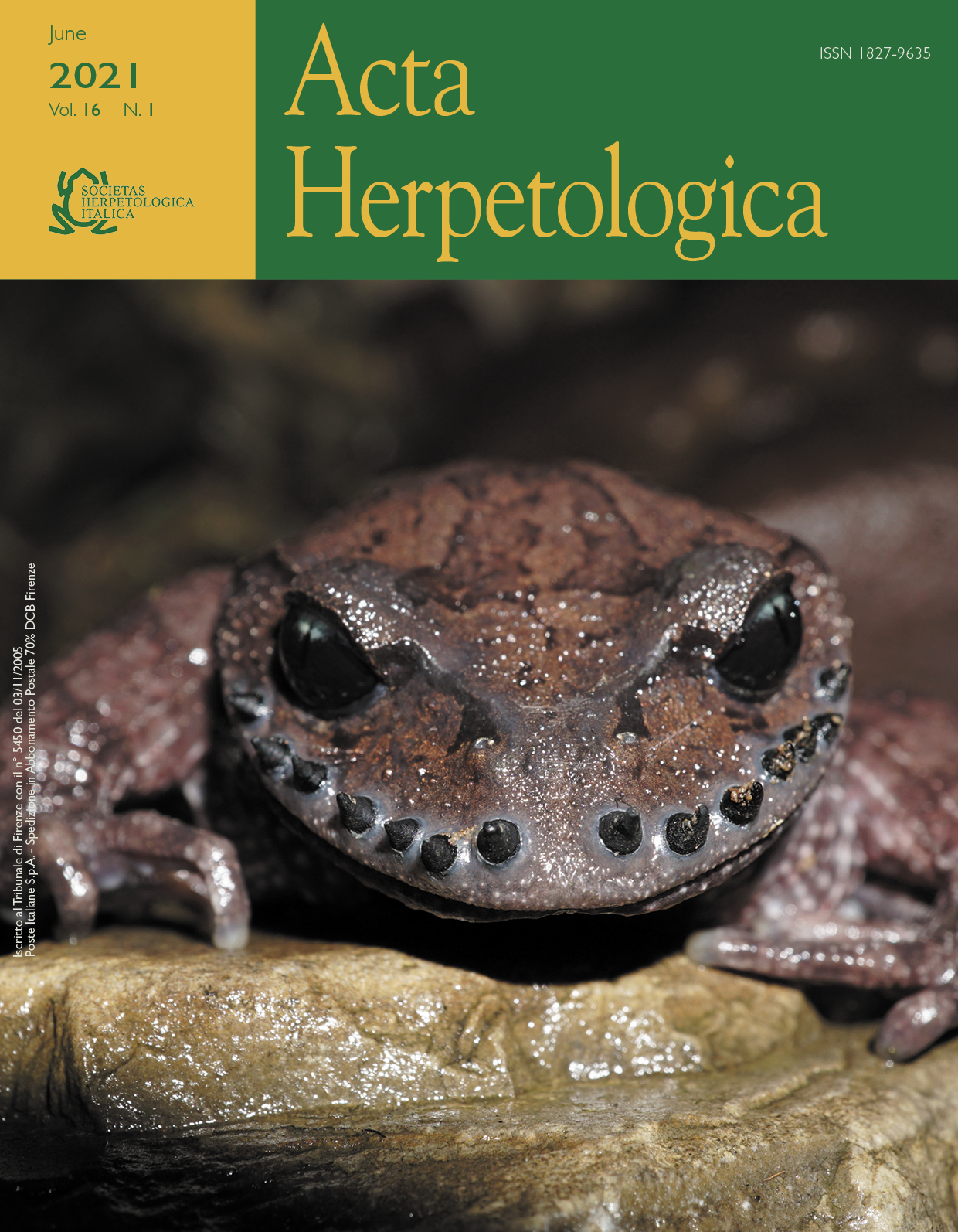Published 2021-05-05
Keywords
- Karyotype,
- heterochromatin,
- FISH,
- Sex chromosomes,
- squamates
- snakes ...More
How to Cite
Abstract
The smooth snake Coronella austriaca is a widespread Palearctic colubrid species. The species has been the subject of several molecular and phylogeographic studies which highlighted the occurrence of distinct genetic lineages in different areas of the species distribution, but scarce cytogenetic data are currently available on the species. In this paper we present a molecular and karyological study performed with several banding, staining methods and NOR-FISH on samples of C. austriaca from different geographical areas (Italy and Greece) of the species distribution. The molecular and phylogenetic analysis unambiguously placed the studied samples in different clades with a clear geographical pattern. The karyotype of the two female samples studied was composed of 2n = 36 chromosomes with 16 macro- and 20 microchromosomes and a mix of plesiomorphic and derivate chromosome features. All macrochromosomes were biarmed with the exception of pair 5 that was telocentric. NORs were detected on a microchromosome pair. In both females, the pair 4 was heteromorphic (and completely heterochromatic after C-banding in the Italian female), representing the first report of a ZZ/ZW sex chromosome system with female heterogamety in C. austriaca. In addition, the W chromosome showed a different morphology between the two female studied (submetacentric and subtelocentric), highlighting the occurrence of a chromosomal diversification among distinct geographical areas of the species distribution and further supporting that the species contains different diverging evolutionary clades.






